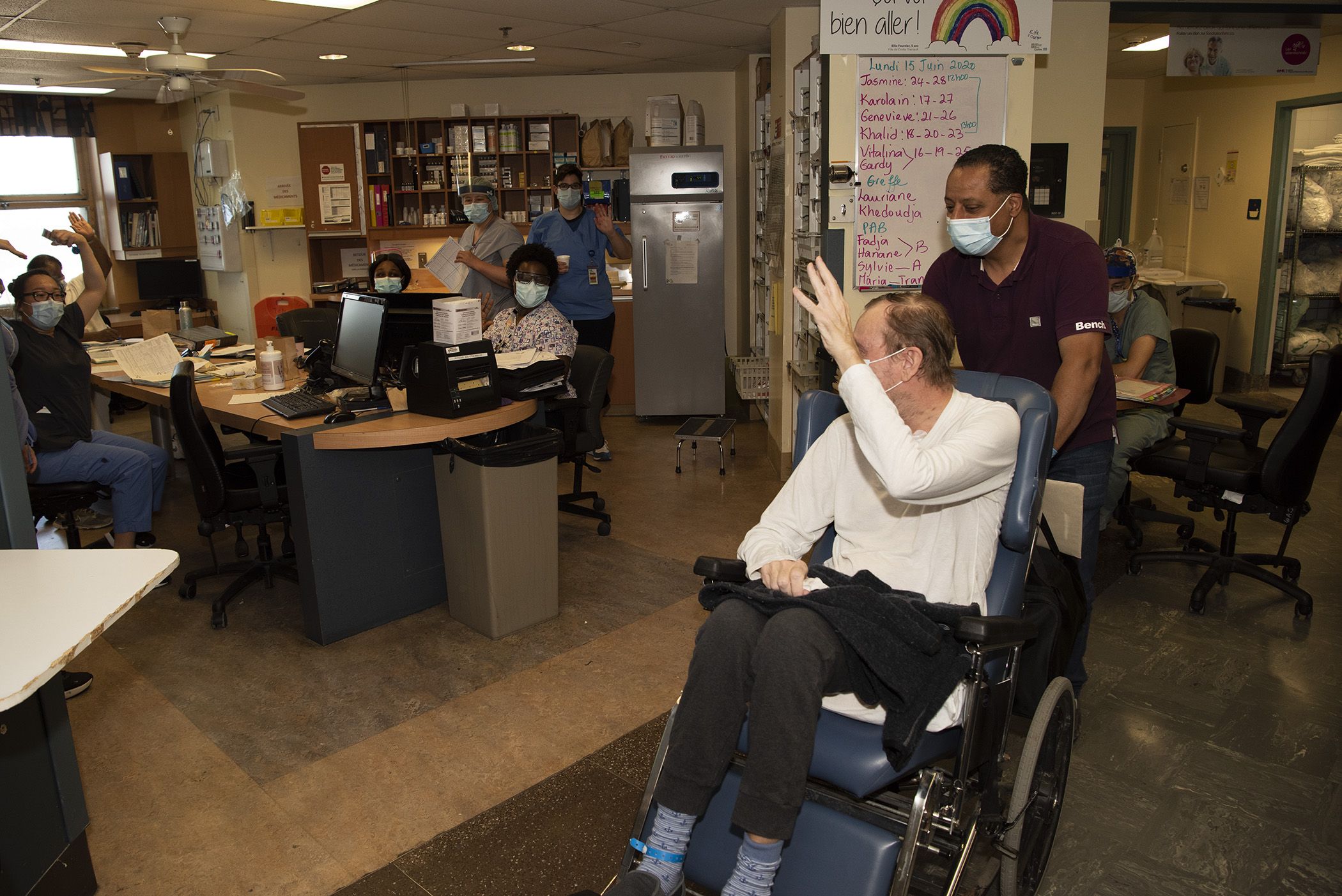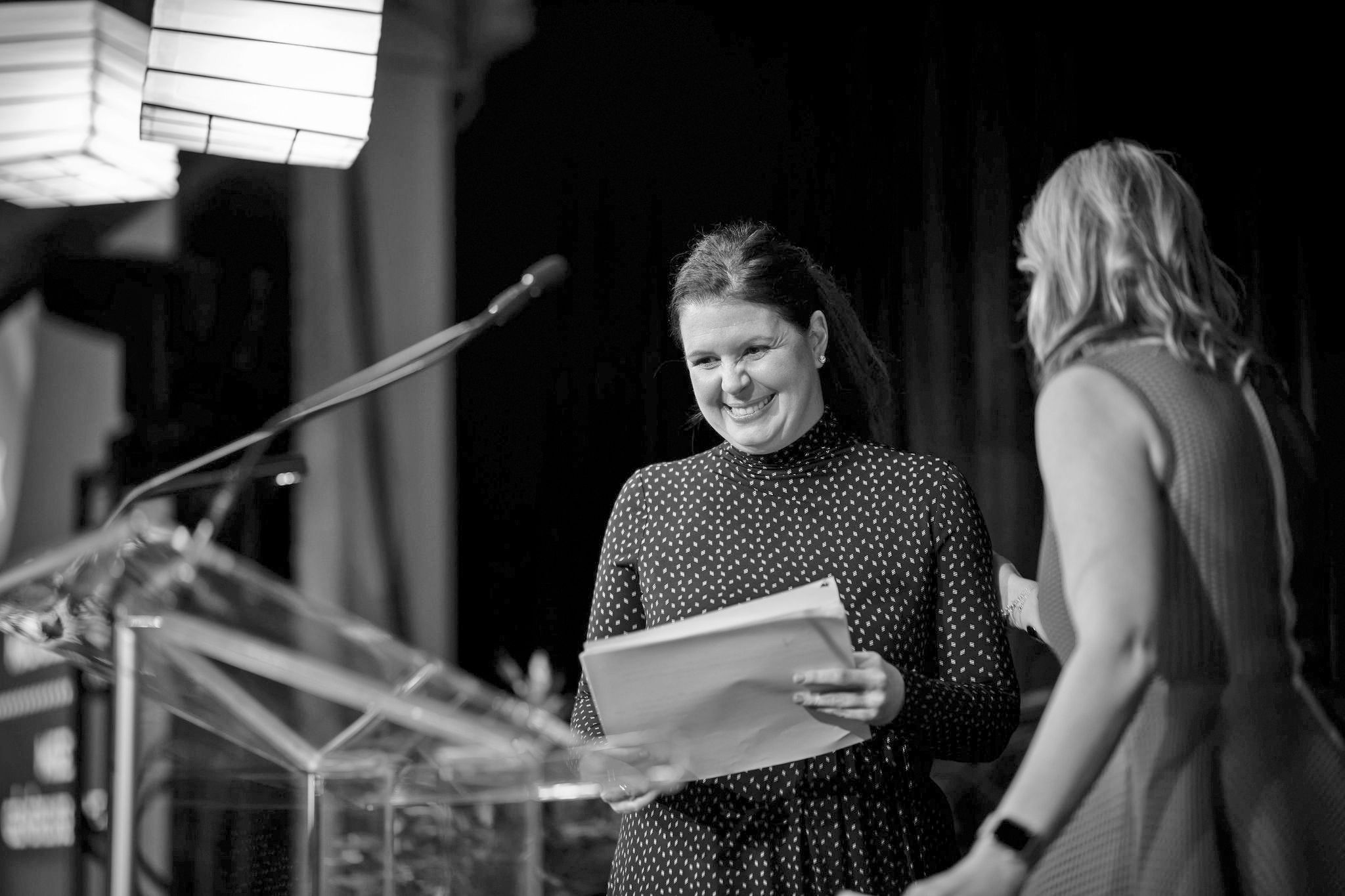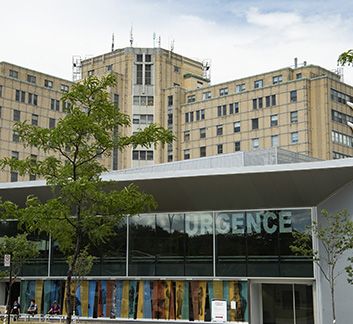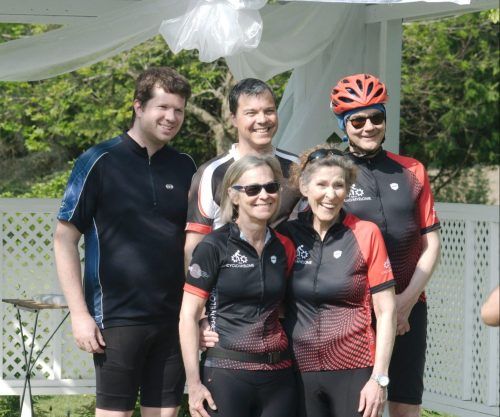COVID-19 I Survivor’s Diary: The Battle
26 June 2020

François greets the team on his release from Maisonneuve-Rosemont Hospital
Infected by COVID-19, François is admitted to the Intensive Care Unit at Maisonneuve-Rosemont Hospital (MRH). He and his wife, Geneviève Rioux, tell us about his incredible journey against the virus.
The diabolical combo
Francois’ troubles start with pneumonia. It is followed with a bacterial infection in his lungs, then a pulmonary embolism.
From the moment he had an embolism, François, extremely weakened, was deeply asleep: his vital signs were not good, and his breathing much too fast.
The simple act of touching his lips to provide him with some care can lower or even cause his blood pressure to drop. Every time the level of sedation is reduced; his breathing gets out of control and he needs to be deeply sedated again.
François’ incredible struggle
To sum up here is the incredibly long list of problems François had to overcome
March
- 25 March (arrival at MRH): Pneumonia
- March 31: Awake and fairly alert, with the respirator, but sitting in a chair. Smiling.
April
- April 1: Relapse… fever. Search for an infectious outbreak. It would be discovered later that it is a bacterial infection (in the lungs).
- April 16: He is taken off the ventilator. Everything goes well… but he has to be intubated again at the end of the day.
- April 20: Pulmonary embolism
May
- May 1: Tracheotomy
- May 4-5: Things are improving … slowly.
- He is woken up more and more often…
- The respirator is turned off for periods of time to allow him to breathe on his own.
- May 8: Setback…
- He must be put to sleep again more deeply and left on the ventilator.
- Medical team manages to dissipate his fever.
- May 12-13: Improvement! Breathing deeper and more evenly. He can spend time in his chair.
- May 19: Modification of the tracheotomy apparatus… François speaks!
- May 27: Removal of the tracheotomy!
François Quenot’ s story continues
˃ Read COVID-19 I Survivor’s Diary: Tested Positive
˃ Read COVID-19 | Survivor Diary: Waiting and Distance
| Without your support, the HMR and its teams would not have been ready to face this pandemic. Without your generosity, the Intensive Care Unit staff would not have had the equipment or access to the training required to adapt to the situation in a timely manner.
Your solidarity has made a difference in the past, it makes the difference today in the face of the pandemic, and it will make the difference again tomorrow. |









